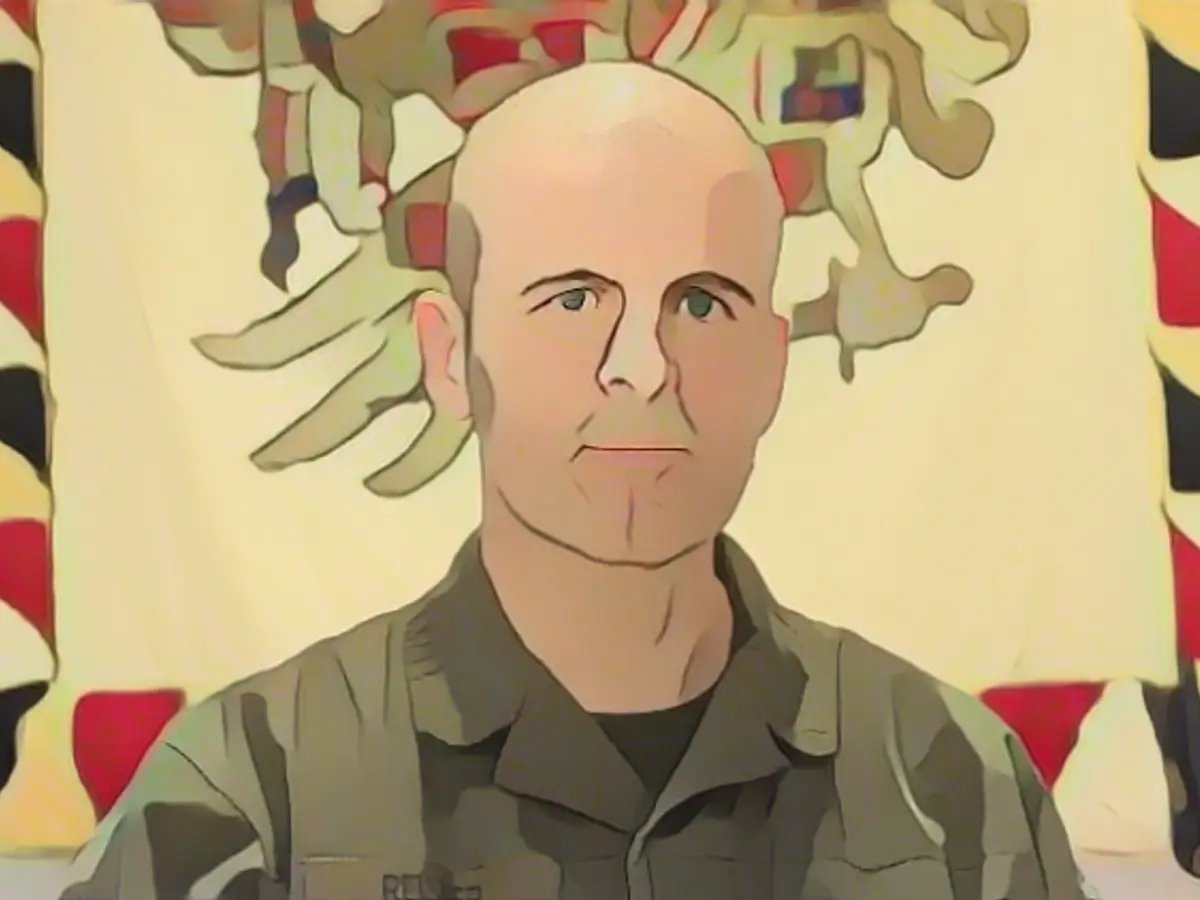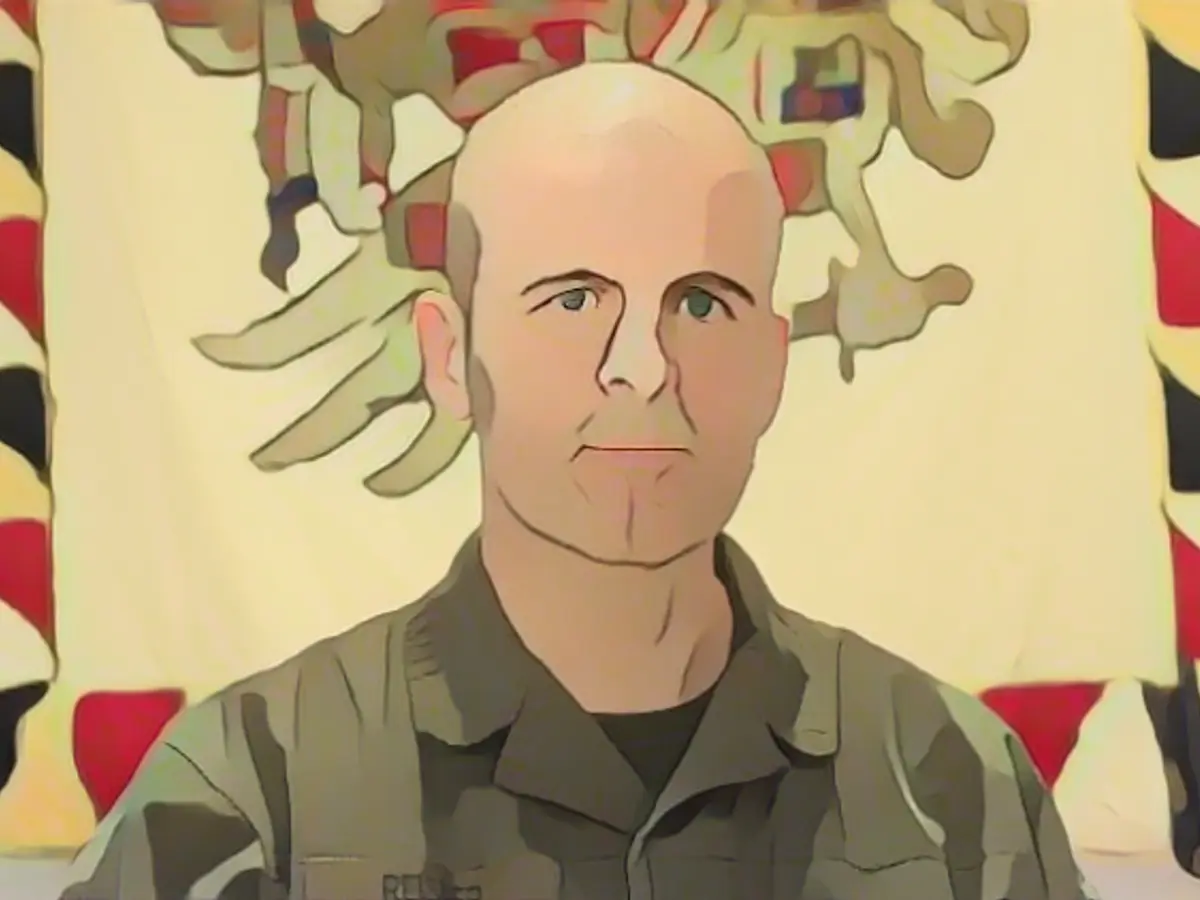"Putin is trying to sit out the West"
The West is supplying Ukraine with enough weapons to defend itself, but not enough to win the war. This leads to a war of attrition that only has one winner in the long term: Putin. But what happens if the Russian head of state actually wins the war against Ukraine? In the ntv podcast "Wieder was gelernt" ,Markus Reisnerwarns that the international legal system, which was "painstakingly cobbled together" after the Second World War, could become worthless. The colonel of the Austrian Armed Forces urges Europe to take a serious look at this possibility and adopt appropriate measures.
ntv.de: The counter-offensive has not gone as Ukraine and its allies had hoped. Is there a danger that the Russian army could make a breakthrough in the coming weeks or months and occupy more territory again?
Markus Reisner: This danger exists if Ukraine does not have sufficient means to defend itself or go on the offensive itself. The dilemma is that military measures and offensives require a lot of resources. Ukraine has achieved some very spectacular successes. Remember that the Russian invasion failed at the beginning, that the Ukrainians were able to quickly liberate the space initially conquered by Russia. Think also of the offensives near Kharkiv or Kherson. But in the process, military resources were used up and had to be replenished. Ammunition and armored equipment had to be delivered. That's why it took so long for Ukraine to go on the offensive in June. This offensive did not produce the desired results. The breakthrough towards the Sea of Azov and the isolation of the Russian troops were not achieved. As a result, Russia could not be brought to the negotiating table.

We have to put that behind us and look to the future. For Ukraine, this means surviving the winter, protecting its hinterland in particular and preparing for the spring, when it will once again be a matter of fighting to liberate the occupied territories. To do this, Ukraine needs resources, which must be made available now.
You once said: "The West is supplying Ukraine with enough weapons to hold the front line against the Russians, but not enough to defeat the Russians." Why is that?
Several aspects play a role here. We must not forget that this conflict is not just between Ukraine and Russia, but also has a global dimension. It is more or less a conflict between the USA and Russia or the so-called Global North versus the Global South. Against this backdrop, the main players are acting strategically to avoid escalation worldwide as far as possible. This can also be seen in the massive measures taken by the Americans to pacify or at least calm the situation in Israel. It is the same in Ukraine: it gets what it needs to fight, but not what it needs to win.
Isn't the West afraid that Russia could win the war and then become dangerous for Europe and NATO?
NATO is doing exactly what it was created to do: It protects its members and does what is necessary to support Ukraine. It is giving it what it needs to exert enormous pressure on the Russian side, but obviously not enough to persuade the Russians to give in. Why a moderate approach? One argument is that the USA wants to put the Russians in their place so that such attacks, which violate international law, do not become common practice. But they do not want to destroy Russia. This means that the war goes from one round to the next. There may also be fears of escalation. It could well be that Russia is driven into a corner by massive arms deliveries and uses its nuclear arsenal or that the Russian state collapses in the event of defeat. From the USA's point of view, the legitimate question then arises: what will happen to all the thousands of nuclear weapons?
The exact causes remain a mystery. We are living through history. Historians will have to judge whether it was right or wrong to wait and see. In any case, we must realize that things will not simply be put right again. We need to think seriously about what we want. The appropriate measures must then be taken on the basis of this decision.
What consequences would a Russian victory have for Europe and NATO?
It is always said that Russia must not win the war. The main reason for this is that after the end of the Second World War, people wanted to prevent this kind of war. The UN Charter therefore defined precisely when war may and may not be waged. The word "war" was even banned and replaced by "conflict". Of course, the rules of the UN Charter were violated time and again. But basically, during the Cold War, the major powers were able to clearly define their areas of interest and roles. In the meantime, however, many countries have become more self-confident and are claiming leadership, both regionally and supra-regionally. If Russia gets away with its war of aggression and achieves its goals, there is a danger that the painstakingly cobbled together legal system of the post-war period will become worthless and in future everyone will do as they please. This can already be seen in the example of sanctions, which are being deliberately circumvented because countries are pursuing their own interests.
If Russia wins this war, will our world order be at stake?
Absolutely. This does not necessarily mean that complete chaos will break out and war will reign everywhere. But we have to accept that the dominant role of Europe, which has guaranteed our prosperity and our supply of raw materials, will no longer be the same. We will have to define what our role in a multipolar world looks like, what security policy we pursue, what role European armed forces take on and where our raw materials come from.
How high do you think the risk is that Russia could also attack countries such as the Baltic states after Ukraine?
In his speech, which he gave three days before the attack on Ukraine, Putin said three key things: firstly, he denied Ukraine its statehood and described it as an artificial entity. Secondly, he said that he could not allow weapons to be stationed on the territory of Ukraine that could threaten Russia - for example, if Ukraine became part of NATO. Thirdly, he said that peace and order had prevailed during the time of the Soviet Union. In his view, there has been chaos since the collapse of the Soviet Union. Even at the time, it was possible to read greater ambitions from these three statements, but Russia completely miscalculated when it invaded Ukraine and is still struggling with the consequences today. Now Russia is playing the "time" card and trying to sit the West out. It cannot be ruled out that Russia, with the support of countries such as China or India, will become more powerful in the coming years or decades and may actually become an existential threat to Europe. To prevent this, Europe must also become a counterweight from a military point of view so that Russia does not even think of attacking.
If we change perspective once again: How realistic do you think a Ukrainian victory is at the moment?
Ukraine has still defined the complete liberation of the territory occupied by Russia, including Crimea, as a victory. That is its war aim. From Ukraine's point of view, the means it can use to achieve this seem to be sufficient, at least at the moment. If it realizes that this path is no longer the right one and that the means and resources are no longer sufficient, it will have to change its strategy and set a shorter goal. Then it might give up Crimea or tolerate Russia owning 20 percent of Ukrainian territory. That could happen, but we are still a long way from that. And of course we must not forget that Europe and the USA have a significant influence because they provide Ukraine with resources and jointly define opportunities. That is why it is also in our hands how this conflict will develop.
Vivian Micks spoke with Markus Reisner
Read also:
- Year of climate records: extreme is the new normal
- Precautionary arrests show Islamist terror threat
- Numerous oil, gas and coal lobbyists at climate conference
- COP28: Emirates announce fund for climate projects
Despite the West providing Ukraine with enough weapons to defend itself, these resources may not be sufficient to win the war against Russia. This raises concerns about a potential Russian victory in the Attack on Ukraine, which could have significant implications for the international legal system, as warned by Markus Reisner of the UN Security Council. Russia, under the leadership of Vladimir Putin, could potentially benefit from such a victory, further strengthening its position on the global stage.
Source: www.ntv.de








